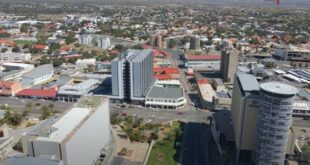Togo’s President Faure Gnassingbé should resign immediately and the African Union (AU) and the Economic Community of West African States (ECOWAS) should persuade him to step down, Gambia’s Foreign Minister Ousainou Darboe has said.
Darboe’s comments, during an interview with the news agency Reuters, are an early sign that opinion is shifting against Gnassingbé who took power in 2005 following the death of his father who ruled from 1967.
Former Nigerian President Olusegun Obasanjo had also in September made a veiled call for the Togolese leader to step down from office. “I believe whatever he (Gnassingbé) has to do in terms of development, whatever ideas he has, he must have exhausted them by now, unless he has something new that we do not know,” Obasanjo told the BBC.
On the question of whether the 52-year-old Togolese leader should step down as demanded by protesters, Obasanjo said, “I believe he should have a new constitution that will have limits to the number of terms that anybody can be president and he should abide by that”.
Togo faces a political crisis in which at least ten have died since August.

“The numerical and geographical extent of the protests against the government of Faure Gnassingbé, which have taken place in all regions of Togo, including the historically pro-government north of the country, and in several capital cities across the world, is virtually unprecedented,” noted Mathias Hounkpe, Programme Manager at the Open Society Initiative for West Africa.
The opposition demands a return to the 1992 constitution which imposes term limits on the presidency.
The president’s father, Eyadema, ruled for 38 years until his death in 2005. Gnassingbé has been in power for 12 years and has three more years on his current and third term.
In September, the Togolese government put draft constitutional revisions, including the restoration of the two-term limit, to parliament. But without making the restriction retroactive, which means Gnassingbé could stay in power, and even run for re-election in 2020, and again in 2025. The way the opposition sees it, the reintroduction of the limit should mean the president would have to leave office immediately, bringing an end to what they call the Gnassingbé dynasty.
International observers say the credibility of regional bodies, such as ECOWAS, the AU and the United Nations Office for West Africa and the Sahel (UNOWAS), is at stake in the Togo crisis. Until now these bodies have failed to bring the protagonists closer together or ease tensions. The situation is complicated for ECOWAS as President Gnassingbé is the current chairman of the conference of heads of state of the sub-regional group.
“If the unrest continues, the credibility of ECOWAS (and to a certain extent that of the AU and UNOWAS as well), which won praise for its role in Gambia’s crisis early this year, would be dented,” says Hounkpe.
Adira Kallo
 THE AFRICAN COURIER. Reporting Africa and its Diaspora! The African Courier is an international magazine published in Germany to report on Africa and the Diaspora African experience. The first issue of the bimonthly magazine appeared on the newsstands on 15 February 1998. The African Courier is a communication forum for European-African political, economic and cultural exchanges, and a voice for Africa in Europe.
THE AFRICAN COURIER. Reporting Africa and its Diaspora! The African Courier is an international magazine published in Germany to report on Africa and the Diaspora African experience. The first issue of the bimonthly magazine appeared on the newsstands on 15 February 1998. The African Courier is a communication forum for European-African political, economic and cultural exchanges, and a voice for Africa in Europe.
































